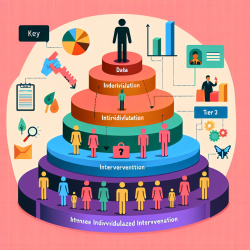Introduction
In the realm of speech-language pathology, the integration of public health insights can significantly enhance therapeutic outcomes for children. The research article titled "Public Health in Africa: Theoretical Framework" by Mario J. Azevedo provides a comprehensive understanding of the health systems in Africa and their historical contexts. By exploring these insights, practitioners can refine their approaches and create more effective, data-driven interventions for children receiving online therapy services, such as those provided by TinyEYE.
Understanding Health Systems in Africa
The article highlights the complexity of African health systems, which are influenced by historical, cultural, and socio-economic factors. These systems often operate under constraints that seem dysfunctional but are deeply rooted in the continent's history. Understanding these nuances is crucial for speech-language pathologists aiming to tailor their interventions to diverse populations.
Key Insights for Practitioners
Here are some actionable insights from the research that can be applied to improve child speech outcomes:
- Holistic Approach: Consider the broader socio-economic and cultural factors affecting a child's environment. This holistic view can inform more personalized therapy plans.
- Resource Allocation: Efficient use of available resources, such as technology and community support, can enhance therapy delivery. Online platforms like TinyEYE can bridge gaps in access to quality speech therapy.
- Community Engagement: Engaging with local communities and understanding cultural practices can help in designing interventions that are culturally sensitive and more likely to be embraced by families.
- Data-Driven Decisions: Utilize data to track progress and adapt interventions. This approach ensures that therapy is responsive to the child's evolving needs and the context in which they live.
Encouraging Further Research
While the article provides a foundational understanding, it also highlights the need for ongoing research. Practitioners are encouraged to delve deeper into the specific challenges and opportunities within African health systems. This research can inform global practices and improve outcomes for children worldwide.
Conclusion
Integrating insights from African public health into speech-language pathology can lead to significant improvements in therapy outcomes for children. By adopting a holistic, data-driven approach and engaging with cultural contexts, practitioners can enhance their effectiveness and contribute to better educational and developmental outcomes for children.
To read the original research paper, please follow this link: Public Health in Africa: Theoretical Framework.










